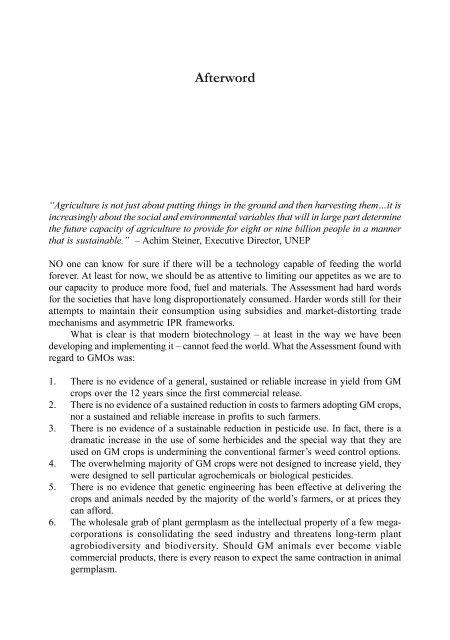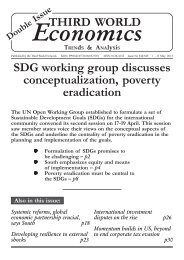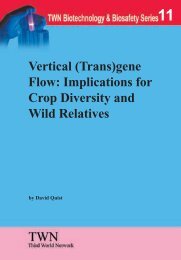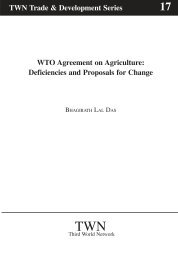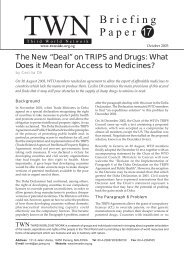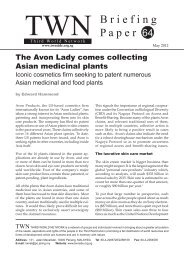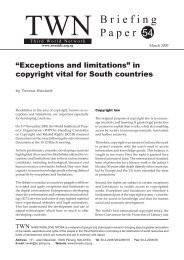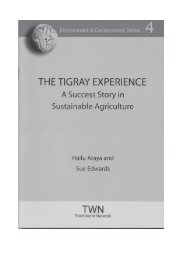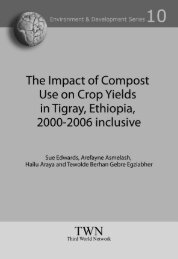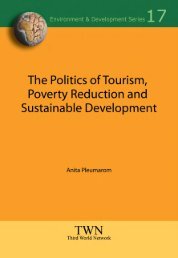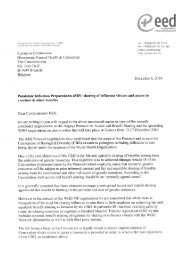Hope Not Hype - Third World Network
Hope Not Hype - Third World Network
Hope Not Hype - Third World Network
- No tags were found...
Create successful ePaper yourself
Turn your PDF publications into a flip-book with our unique Google optimized e-Paper software.
Afterword<br />
123<br />
Afterword<br />
“Agriculture is not just about putting things in the ground and then harvesting them…it is<br />
increasingly about the social and environmental variables that will in large part determine<br />
the future capacity of agriculture to provide for eight or nine billion people in a manner<br />
that is sustainable.” – Achim Steiner, Executive Director, UNEP<br />
NO one can know for sure if there will be a technology capable of feeding the world<br />
forever. At least for now, we should be as attentive to limiting our appetites as we are to<br />
our capacity to produce more food, fuel and materials. The Assessment had hard words<br />
for the societies that have long disproportionately consumed. Harder words still for their<br />
attempts to maintain their consumption using subsidies and market-distorting trade<br />
mechanisms and asymmetric IPR frameworks.<br />
What is clear is that modern biotechnology – at least in the way we have been<br />
developing and implementing it – cannot feed the world. What the Assessment found with<br />
regard to GMOs was:<br />
1. There is no evidence of a general, sustained or reliable increase in yield from GM<br />
crops over the 12 years since the first commercial release.<br />
2. There is no evidence of a sustained reduction in costs to farmers adopting GM crops,<br />
nor a sustained and reliable increase in profits to such farmers.<br />
3. There is no evidence of a sustainable reduction in pesticide use. In fact, there is a<br />
dramatic increase in the use of some herbicides and the special way that they are<br />
used on GM crops is undermining the conventional farmer’s weed control options.<br />
4. The overwhelming majority of GM crops were not designed to increase yield, they<br />
were designed to sell particular agrochemicals or biological pesticides.<br />
5. There is no evidence that genetic engineering has been effective at delivering the<br />
crops and animals needed by the majority of the world’s farmers, or at prices they<br />
can afford.<br />
6. The wholesale grab of plant germplasm as the intellectual property of a few megacorporations<br />
is consolidating the seed industry and threatens long-term plant<br />
agrobiodiversity and biodiversity. Should GM animals ever become viable<br />
commercial products, there is every reason to expect the same contraction in animal<br />
germplasm.


